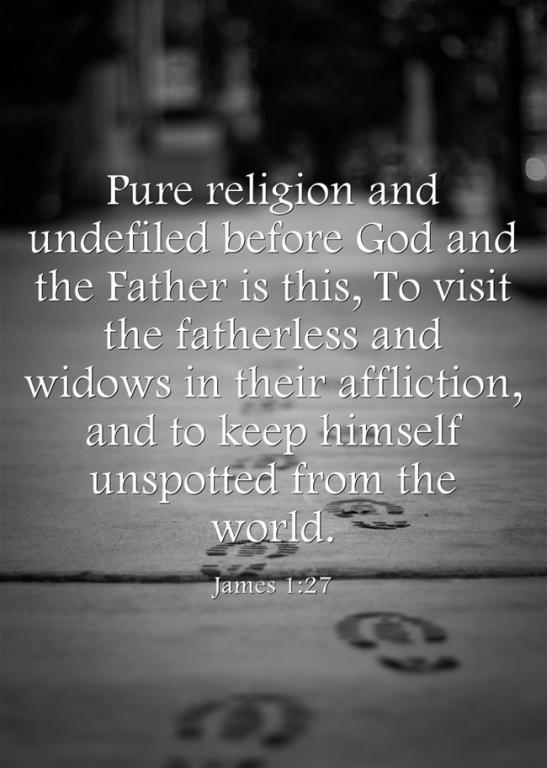Do you think that churches should keep their tax exempt status? If so, why and if not, why not?
Movements to end tax exempt Status
There are movements under way right now by the very powerful, influential, and wealthy people of our nation to end the tax exempt status for churches. It’s not just the “liberal left” but the anti-Christian bias that is pushing for this. For some of those who want to end church tax exempt status, they can tolerate anything but the church. The new religion is “tolerance” and applies to everyone else but the Christian. Is the real reason because the church preaches on sin, the need for forgiveness, repentance, other essentials of the faith, and that sometimes those sins are things that others practice? Only they can answer for themselves but it is certainly possible.
Non-Profits
It doesn’t make sense to tax the church when they are already doing a lot of the same charity work for the community just like the Red Cross and the Salvation Army. Churches don’t duplicate the services of other organizations; they simply fill in the cracks that are missed. Churches tend to respond almost immediately when disaster strikes while the state and federal officials are slower to respond. Churches can cut through the bureaucracy and deliver needs-based help to the local population right away. By taxing churches on their income they divert crucial resources from the churches which are used to provide for the needs of the community and provide whatever services are necessary. They try to catch those who others miss. We have a prison ministry, a nursing home ministry, a clothing ministry and a few other things but taxing our church would make it necessary to reduce some of these ministries for the disenfranchised of society that we minister too. Church is not a business but we are in the business of giving aid to others so why tax churches for helping society? Churches can beat any other social service agency dollar for dollar. Collectively, churches in our area operate soup kitchens, homeless shelters, afterschool programs for poor families, substance abuse counseling, pornography additions classes, gambling addition programs, assistance to victims of domestic violence, and the list goes on. All of these services are free. If churches were to be taxed, who knows if all or most of these services would remain and what the impact on society would be.
Obey God over Man
There has come many a day when a believer had to make a decision; his job or his conscience. He or she was put in a position of whether they would obey God or they would have to obey their employer and possibly lose their job. I recently spoke with a lady in our church where she was asked to do something that went against her conscience and feared she’d be reprimanded or fired over not complying with the customer’s request. I told her to follow her conscience; a conscience that is full of the Word of God which will allow her to make a biblically-based decision that glorifies God and not be a decision that simply keeps her out of trouble. The disciples were asked to stop preaching about Jesus Christ when the council declared “We strictly charged you not to teach in this name, yet here you have filled Jerusalem with your teaching, and you intend to bring this man’s blood upon us” (Acts 5:28) but Peter knew of a Most High Authority and so said “We must obey God rather than men” (Acts 5:28). It is not illegal for churches to preach the gospel but it may be illegal someday for churches to preach on sin. They disciples obeyed the command to go and make disciples of all nations (Matt 28:18-20). They never asked if it was okay with the government.
Conclusion
Where will all this effort to strip churches of tax exempt status lead too? It could be the end of their tax exempt status; it could reduce the number of services provided through their various ministries; this could add pressure to other social service agencies; it could spell the end of many smaller churches; and it could increase suffering caused by natural disasters as victims wait longer for services and to have their immediate needs met. James wrote that “whoever knows the right thing to do and fails to do it, for him it is sin” (James 4:7) but if churches are taxed, the “right thing to do” will be made that much harder. It’s not about a religion but about a relationship with the communities that Christians are placed and being the Body of Christ (Matt 25). Believers see their faith like this; “Religion that is pure and undefiled before God, the Father, is this: to visit orphans and widows in their affliction, and to keep oneself unstained from the world” (James 1:27). How can you put an estimated tax on that belief?
Article by Jack Wellman
Jack Wellman is Pastor of the Mulvane Brethren church in Mulvane Kansas. Jack is also the Senior Writer at What Christians Want To Know whose mission is to equip, encourage, and energize Christians and to address questions about the believer’s daily walk with God and the Bible. You can follow Jack on Google Plus or check out his book Teaching Children the Gospel available on Amazon.












